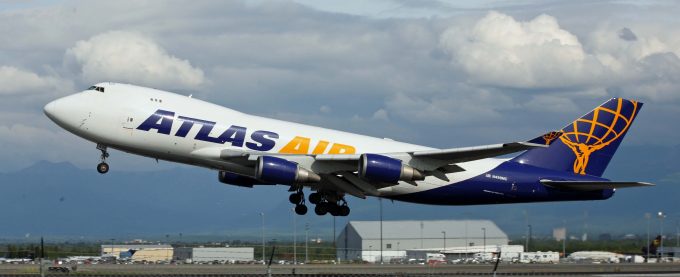ANA postpones Nippon Cargo Airlines takeover until May
The long-running takeover of Nippon Cargo Airlines by ANA Holdings has been postponed yet again, ...

The acquisition of Atlas Air by an Apollo-led consortium appears to be progressing fast, with Bloomberg reporting that a deal could be announced this week.
The buyout is expected to be priced at $102.50 a share, only marginally higher than the $100-a-share base-case forecast by Loadstar Premium yesterday. This stamps on Atlas equity a price tag of some $3.2bn, on a fully diluted basis.
It could be delisted before the end of the year – with private equity ownership typically focused on ...
Outlook for container shipping 'more uncertain now than at the onset of Covid'
Transpac container service closures mount
Shippers warned: don't under-value US exports to avoid tariffs – 'CBP will catch you'
Cancelled voyages take the sting out of spot rate declines this week
New Houthi warning to shipping as rebel group targets specific companies
Blanked sailings in response to falling demand 'just a stop-gap solution'
K+N CEO unveils impact of US import tariffs on China-origin goods
CMA CGM to reflag box ship as the French carrier eyes growing Indian market
UK pauses tariffs on 'everyday' items
Boeing looks to resell up to 50 aircraft rejected by Chinese buyers
'Strong start' to 2025, despite market uncertainty, says Kuehne + Nagel
More pressure on transpacific rates as carriers bet on a China-US trade deal
US Customs chaos means 'more downside risk than upside potential' for air cargo
Taiwan ministries act to mitigate effect of trade war on agriculture exports
Wan Hai joins box shipping 'arms race', but avoids Chinese yards for newbuilds

Comment on this article